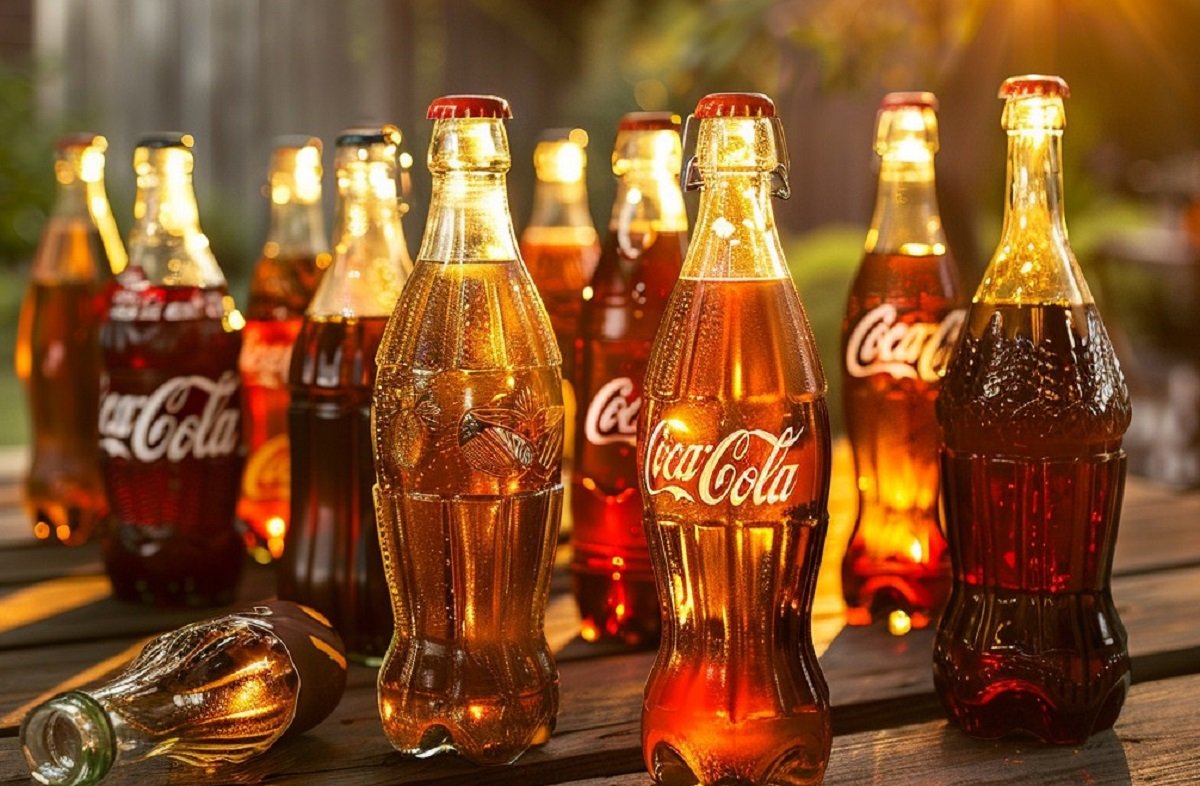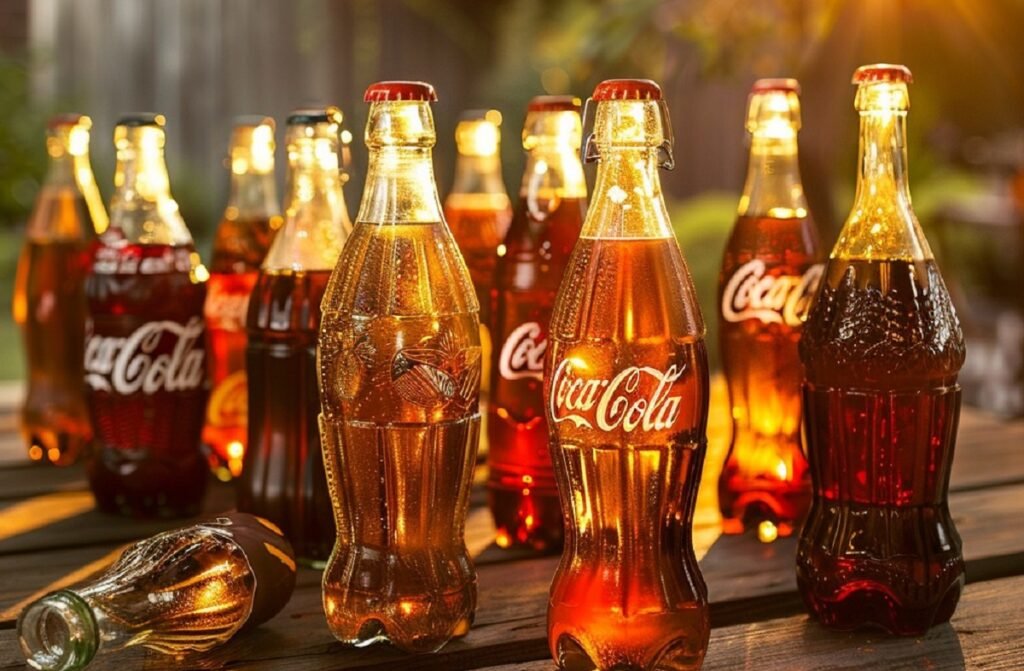In the global beverage market, Coca-Cola is a unique beverage that has become ingrained in cultures all over the world. Harmful Effects Of Drinking Coca Cola are various in numbers. Coca-Cola, which dates back to the late 1800s, has come to represent luxury, refreshment, and even cultural significance.

But hidden beneath its seductive fizz and irresistible taste are a host of negative repercussions that frequently go unrecognized. In order to shed light on the negative effects of Coca-Cola use on society, the environment, and health, this essay will examine these effects.
Understanding the Composition of Coca-Cola
Before exploring its negative consequences, it is important to understand Coca-Cola’s ingredients. The main ingredients include carbonated water, high-fructose corn syrup, phosphoric acid, caramel color, caffeine, and numerous flavorings, though the precise recipe is kept a closely-guarded secret. This seemingly harmless concoction of ingredients is the foundation of a beverage that has won over billions of palates across the globe.
Harmful Effects of Drinking Coca Cola
1. Obesity and Weight Gain:
The fact that Coca-Cola use contributes to obesity and weight gain is among the most concerning side effects. The common sweetener in Coca-Cola, high-fructose corn syrup, has been connected to an increase in obesity rates. Harmful Effects Of Drinking Coca Cola includes weight gain. Frequent intake of high-calorie beverages, such as Coca-Cola, can result in weight gain and obesity, which increases the risk of developing a number of chronic illnesses, including diabetes, heart disease, and several types of cancer.
2. Dental Health:
Coca-Cola is especially bad for tooth health because of its high sugar content and acidic taste. Long-term consumption of acidic and sugary beverages can erode tooth enamel, resulting in tooth decay, cavities, and other dental problems. Moreover, the marriage of acids and sugars produces the perfect conditions for the development of dangerous bacteria in the mouth, which eventually exacerbates dental issues. Harmful Effects Of Drinking Coca Cola includes dental decay.
3. Diabetes and Metabolic Disorders:
Overindulgence in sugary drinks, such as Coca-Cola, is closely linked to a higher risk of type 2 diabetes and other metabolic diseases. Coca-Cola’s high sugar content can lead to blood glucose spikes, which can strain the body’s insulin response systems. Harmful Effects Of Drinking Coca Cola includes diabetes. This can eventually result in insulin resistance and diabetes, which poses serious health concerns to people, especially those who are predisposed to metabolic diseases.
4. Bone Health:
One of Coca-Cola’s major ingredients, phosphoric acid, has been related to negative impacts on bone health. Consuming too much phosphoric acid can disrupt the body’s ability to absorb calcium, weakening bones and raising the risk of osteoporosis. Frequent drinking of drinks like Coca-Cola that contain phosphoric acid might eventually weaken bone density, especially in people who don’t get enough calcium in their diet. Harmful Effects Of Drinking Coca Cola includes bone weakness.
Societal Implications of Coca-Cola Consumption
1. Addiction and Dependency:
Because of its addictive qualities, those who drink too much Coca-Cola may become dependent on it and develop an addiction to it. Regular consumers may experience cravings and withdrawal symptoms due to the strong mixture of sugar, caffeine, and other stimulating substances. In addition to harming a person’s health, this addiction feeds a vicious cycle of reliance that can be difficult to escape.
2. Marketing to Children:
Coca-Cola’s aggressive marketing tactics frequently target youth, promoting unhealthy drinking habits from an early age. Coca-Cola cultivates a sense of intrigue around its products through attractive sponsorships, branding initiatives, and ads, making them desirable to younger populations. This marketing strategy not only reinforces brand loyalty from a young age but also contributes to childhood obesity and associated health problems.
3. Environmental Impact:
There is a considerable environmental deterioration associated with the production, packaging, and distribution of Coca-Cola. There are significant environmental repercussions associated with every step of the Coca-Cola supply chain, from the extraction of raw materials like sugar and water to the production of plastic bottles and cans. Global environmental concerns are exacerbated by Coca-Cola’s operations, which are linked to several environmental issues such as plastic pollution, deforestation, greenhouse gas emissions, and water depletion.
4. Economic Burden:
Healthcare systems, communities, and individuals all bear a heavy financial burden from the expenditures of treating illnesses brought on by Coca-Cola consumption. Dental care, diabetes control, and obesity-related illnesses are a few of the medical costs associated with excessive Coca-Cola intake. Furthermore, the economic burden of health issues associated to Coca-Cola is further compounded by productivity losses resulting from disease and incapacity.
Addressing the Harmful Effects of Coca-Cola
1. Public Health Awareness:
Promoting healthier beverage options and lowering consumption rates need increasing public knowledge of the negative impacts of Coca-Cola use. People can be empowered to make informed decisions about their consumption habits by receiving correct information on the health dangers associated with sugary beverages like Coca-Cola through the use of educational campaigns, public health efforts, and policy measures. Harmful Effects Of Drinking Coca Cola should be aware to public.
2. Regulatory Measures:
In order to reduce the use of sugary beverages and lessen their negative consequences, governments and regulatory organizations are essential in putting rules and regulations into place. Regulations pertaining to labeling, sugar taxes, and marketing limitations, among other things, might help deter excessive Coca-Cola use and encourage healthier alternatives. Initiatives to increase access to safe drinking water and encourage water usage can also help people consume fewer sugar-filled beverages.
3. Corporate Responsibility:
It is the duty of beverage corporations such as Coca-Cola to give public health and environmental sustainability first priority in their business operations. Coca-Cola and comparable companies may lessen their detrimental effects on the environment and public health by introducing sustainable packaging solutions, cutting the amount of sugar in beverages, investing in healthier product alternatives, and adopting transparent labeling standards.
Coca-Cola- Tin Can- BUY NOW
 SHOP NOW
SHOP NOW
Conclusion
Although Coca-Cola may provide a brief feeling of delight and refreshment, drinking it has a number of negative repercussions on society, the environment, and individual health. There are several negative effects of drinking Coca-Cola, ranging from obesity and dental problems to environmental damage and financial strain. To address these problems and promote healthier beverage choices, public health, and the preservation of the environment for future generations, governments, corporations, and individuals must work together. Through acknowledging and tackling the detrimental impacts of Coca-Cola, we can create space for a more sustainable and health-conscious future.
